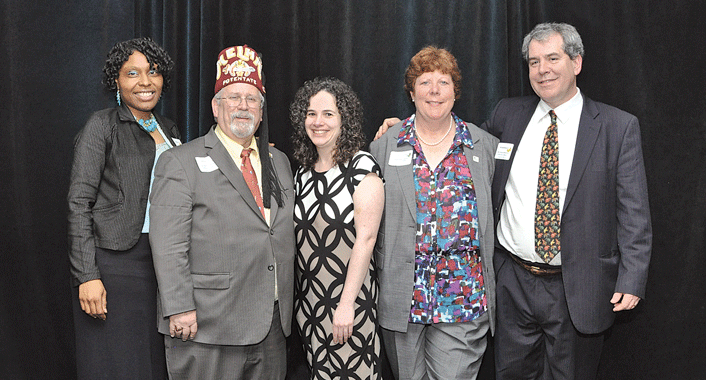 More than 300 people turned out at the Log Cabin Banquet & Meeting House in Holyoke on March 20 for a celebration of the Difference Makers for 2014. The photos on the next several pages capture the essence of the event, which featured entertainment from the Children’s Chorus of Springfield and the Taylor Street Jazz Band, as well as fine food and some poignant comments from the honorees. This year’s class, chosen by the editors and publishers of BusinessWest from dozens of nominations, and seen in a group photo above, are, from left: Paula Moore, founder of the Youth Social Educational Training (YSET) Academy; the Melha Shriners, represented by Potentate William Faust; the Gray House, represented by Executive Director Dena Calvanese; Colleen Loveless, executive director of the Springfield office of Rebuilding Together; and Michael Moriarty, attorney and president of Olde Holyoke Development Corp., chosen for his work with youth literacy.
More than 300 people turned out at the Log Cabin Banquet & Meeting House in Holyoke on March 20 for a celebration of the Difference Makers for 2014. The photos on the next several pages capture the essence of the event, which featured entertainment from the Children’s Chorus of Springfield and the Taylor Street Jazz Band, as well as fine food and some poignant comments from the honorees. This year’s class, chosen by the editors and publishers of BusinessWest from dozens of nominations, and seen in a group photo above, are, from left: Paula Moore, founder of the Youth Social Educational Training (YSET) Academy; the Melha Shriners, represented by Potentate William Faust; the Gray House, represented by Executive Director Dena Calvanese; Colleen Loveless, executive director of the Springfield office of Rebuilding Together; and Michael Moriarty, attorney and president of Olde Holyoke Development Corp., chosen for his work with youth literacy.
For more photos go to here
Baystate Medical Practices • First American Insurance • Health New England • Meyers Brothers Kalicka, P.C. • Northwestern Mutual • Royal LLP • Sarat Ford Lincoln • 6 Pt. Creative Works
For reprints contact: Denise Smith Photography / www.denisesmithphotography.com / [email protected]
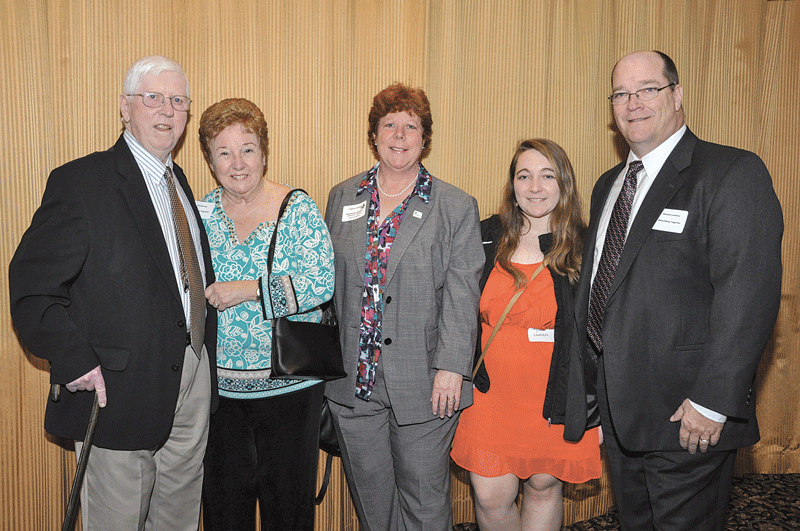
Difference Maker Colleen Loveless, center, stands with her parents, Jim and Pat Shanley, left, her husband, Donald Loveless, and her daughter, Taylor Loveless, prior to the ceremonies.

From left, Srs. Jane Morrissey and Cathy Homrok, members of the Sisters of St. Joseph and two of the founders of the Gray House, one of this year’s honorees, with Dena Calvanese, executive director of the Gray House, Leyla Kayi, director of Donor Relations, and Glenn Yarnell, director of Adult Education.

Lynn Ostrowski, director of Brand and Corporate Relations for Health New England, one of the event’s sponsors, with Brian Kivel, right, sales executive for Health New England, and Patrick Ireland, president and founder of Neutral Corner Inc.
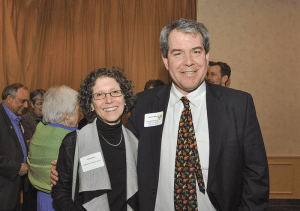
Carol Katz, member of the Difference Makers Class of 2010, talks with 2014 Diffference Maker Michael Moriarty, director of Olde Holyoke Development Corp., during the event’s VIP hour.
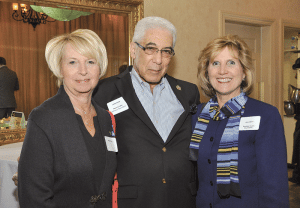
Jim Vinick, senior vice president of investments at Moors & Cabot Inc. and member of the Difference Makers Class of 2013, poses with speech pathologist Marjorie Koft, left, and Jane Albert, vice president of development at Baystate Health, another of the event’s sponsors.
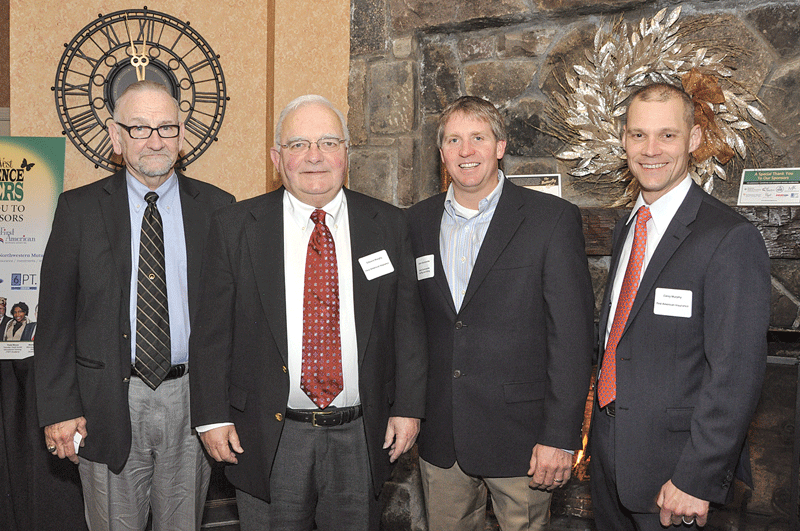
Corey Murphy, far right, president of First American Insurance, one of the event sponsors, with, from left, team members Dennis Murphy, document processor, and Edward Murphy, chairman, network with Adam Quenneville, president of Adam Quenneville Roofing and Siding (second from right).
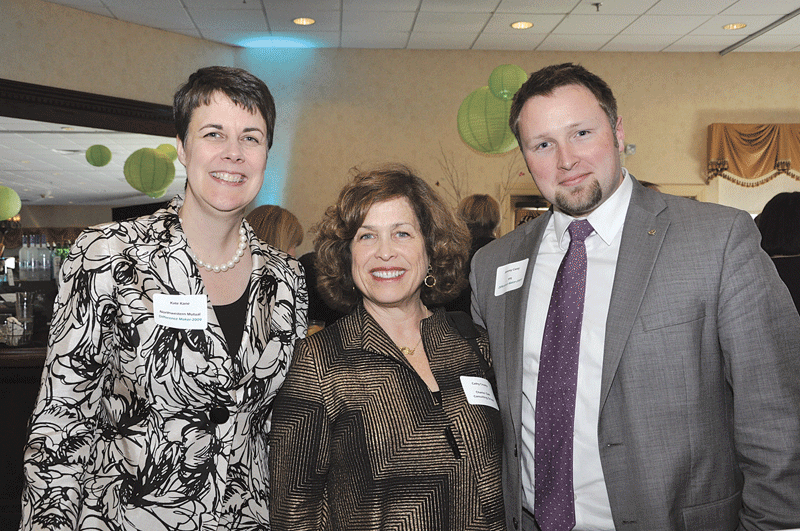
Kate Kane, left, managing director of the Springfield office of Northwestern Mutual (an event sponsor) and member of the Difference Makers Class of 2009, talks with Cathy Crosky, senior leadership consultant for Charter Oak Consulting Group, and Jeremy Casey, assistant vice president of Commercial Services at Westfield Bank, and president of the Young Professional Society of Greater Springfield, Difference Makers Class of 2009.
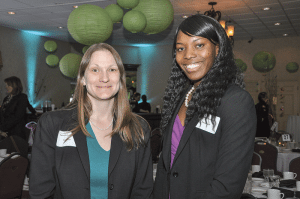
Karina Schrengohst, left, an attorney with Northampton-based Royal LLP, an event sponsor, talks with Crystal Boetang, an intern with the firm.
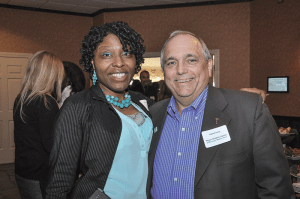
Paula Moore, founder of the Youth Social Educational Training (YSET) Academy and 2014 Difference Maker, networks with Robert Perry, a retired partner of Meyers Brothers Kalicka, P.C. (an event sponsor) and member of the Difference Makers Class of 2011.
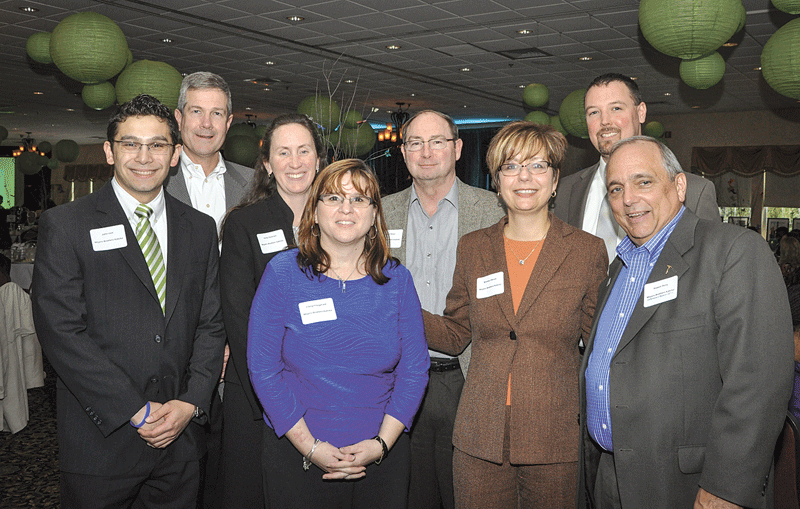
Team members of Meyers Brothers Kalicka, P.C., an event sponsor, gather prior to the ceremonies to show their support at the event. Front row, from left: John Veit, marketing and recruiting coordinator; Cheryl Fitzgerald, senior manager of Taxation; Brenda Olesuk, director of Operations and Development; and Robert Perry, past honoree and retired partner. Back row, from left: James Barrett, managing partner; Kelly Dawson, manager of Audit and Accounting; Kevin Hines, partner; and James Krupienski, senior manager of Audit and Accounting.
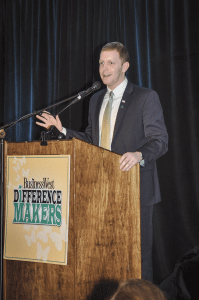
Holyoke Mayor Alex Morse takes a few minutes at the podium to welcome the audience to his city and commend Difference Maker Michael Moriarty for his work in the realm of youth literacy in the Paper City.

Difference Maker Paula Moore, recognized this year for her outstanding work with Springfield’s youth, offers words of inspiration after receiving her award.
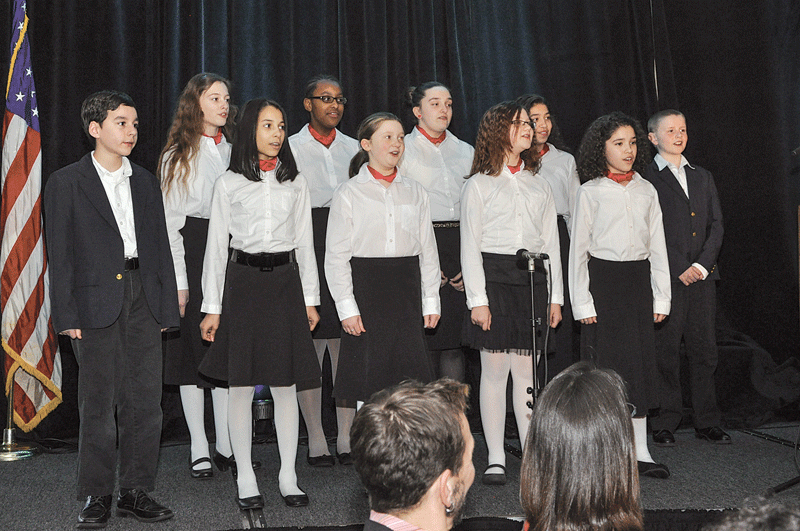
Continuing a Difference Makers tradition, the Children’s Chorus of Springfield kicked off the festivities. Led by Wayne Abercrombie, artistic director, the chorus performed three inspiring songs.
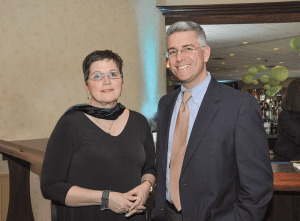
Gwen Burke, senior advertising consultant at BusinessWest, talks with Jeff Sarat, general sales manager at Sarat Ford, one of the event’s sponsors.
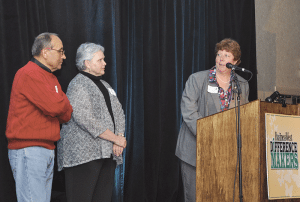
Difference Maker Colleen Loveless, executive director of the Springfield chapter of Rebuilding Together, was recognized this year for her work to help low-income families stay in their homes. Here, she introduces Oscar and Carol Granado, a couple whose home was renovated thanks to the organization.
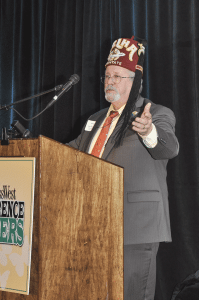
The Melha Shriners were recognized as Difference Makers for their commitment to bettering children’s lives, especially through their support of Shriners Hospitals for Children. Here, Potentate William Faust shares some thoughts with the audience after receiving the award on behalf of the organization.




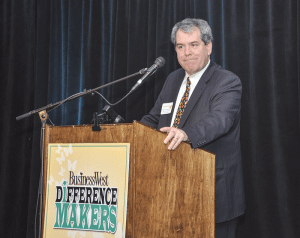
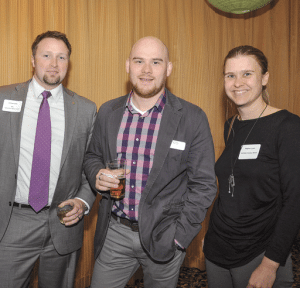

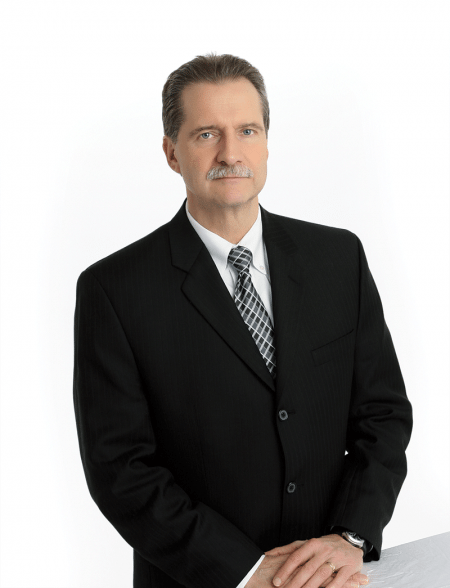 Jim Goodwin says that too many people, especially some in the business community, look upon human services work as a “drain.”
Jim Goodwin says that too many people, especially some in the business community, look upon human services work as a “drain.”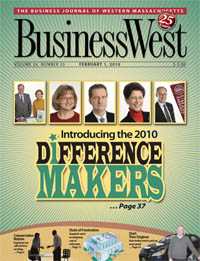
 Their contributions to the community vary, from work to transform elder care to donations of time, energy, and imagination to a host of nonprofit agencies; from philanthropy that far exceeds grant awards to work to improve the lives of some of the most downtrodden constituencies in our society; from multi-faceted efforts to spur economic development in the region to simply inspiring others to find ways to make an impact. They are the Difference Makers Class of 2010. Their stories are powerful and compelling.
Their contributions to the community vary, from work to transform elder care to donations of time, energy, and imagination to a host of nonprofit agencies; from philanthropy that far exceeds grant awards to work to improve the lives of some of the most downtrodden constituencies in our society; from multi-faceted efforts to spur economic development in the region to simply inspiring others to find ways to make an impact. They are the Difference Makers Class of 2010. Their stories are powerful and compelling.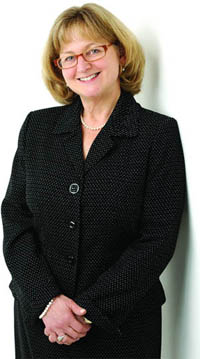
 Shareholder with Shatz, Schwartz and Fentin, P.C.
Shareholder with Shatz, Schwartz and Fentin, P.C.
